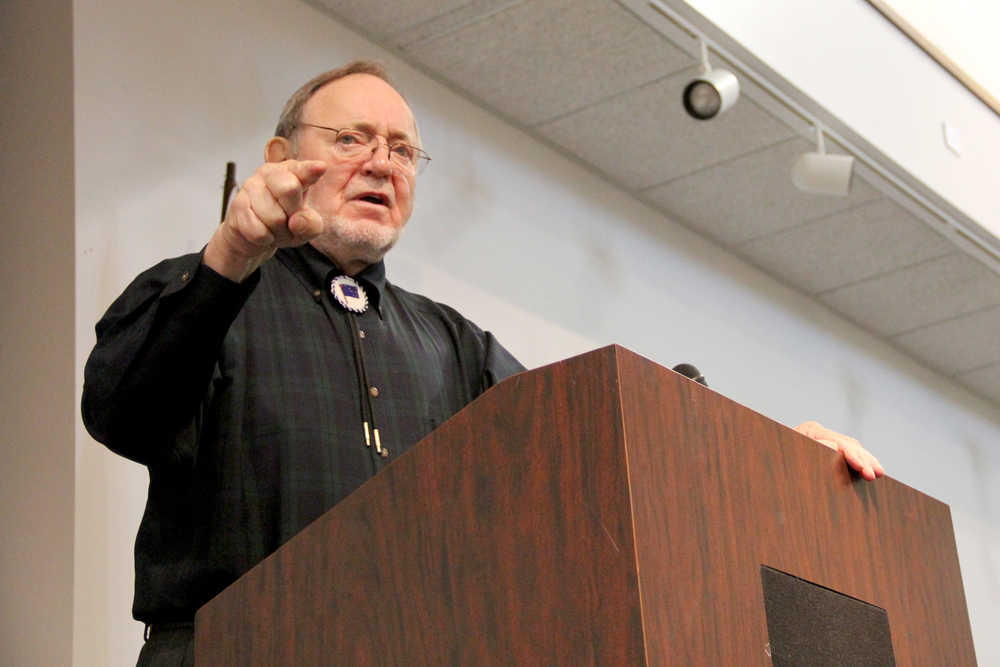Republican Congressman Don Young spoke to a full house at Wednesday’s Kenai and Soldotna joint chamber luncheon.
He addressed attendees about the lack of “positive action in Washington, D.C.,” which he said is the result of a the shift in power from the legislators to the president which occurred over the last seven presidencies, he said.
“Every president very frankly for the last seven presidents has tried to accumulate power within the executive branch and in doing so we’ve lost the legislative capability to direct this country,” Young said.
He said the country has lost states’ rights and said a centralized monarch is governing the country. Alaska is being abused, he said, and states’ rights will be lost unless individuals speak up to preserve the republic status of the nation.
“There should never be an opportunity (for) the federal government to impose a restriction on an individual or a municipality if it doesn’t make sense,” he said. “The state should be the buffer zone between the municipalities and the federal government.”
Alaskans need to assert their statehood right under the constitution, he said. While he believes in Alaska and the nation, he doesn’t believe in today’s government because it has gotten so large and untouchable and displays a “lack of responsibility to the constituent” so that society is no longer free.
Following his about 10-minute comments, he answered questions from attendees ranging from the marijuana initiative in Alaska to the Jones Act in relation to the Alaska Pipeline Project to Arctic National Wildlife Refuge drilling.
Kenai Peninsula School District Superintendant Dr. Steve Atwater said with voters poised to consider marijuana legalization in the fall, he is concerned, if passed, the new law could be detrimental to Alaskan students. He asked if the federal government can sway voters’ opinions.
Young said as a state’s rightist, it is up to the Alaskan voters to decide whether or not to legalize marijuana.
The Jones Act encourages the development and maintenance of merchant marine and requires goods shipped between U.S. ports to be transported by made-in-the U.S. ships. Young said the ships at Nikiski are foreign built and can transport to any country. He said he believes the shipyards can build good ships for intracoastal trade.
“If I was the state of Alaska and I was the oil companies that have control over the gas,” Young said, “I would go to some of our ship builders and say, ‘Are you interested in building (a liquid natural gas) ship to ship gas? We’ll go into partnerships with you.’”
He said if an LNG pipeline is built, there will be enough gas to send to the Lower 48 via Jones Act ships.
Young, who is a proponent of drilling onshore in the Arctic National Wildlife Refuge, said he wants to see the Trans-Alaska Pipeline System continue to transport oil. He said if it moves much less than what it does currently, there won’t be a pipeline because when the bill was passed, it called for the pipeline to be pulled up when it ceases to operate.
“I’m trying to get oil in that pipeline. … And with this president upfront he does not want any fossil fuels to be burned,” Young said.
Kaylee Osowski can be reached at kaylee.osowski@peninsulaclarion.com.

